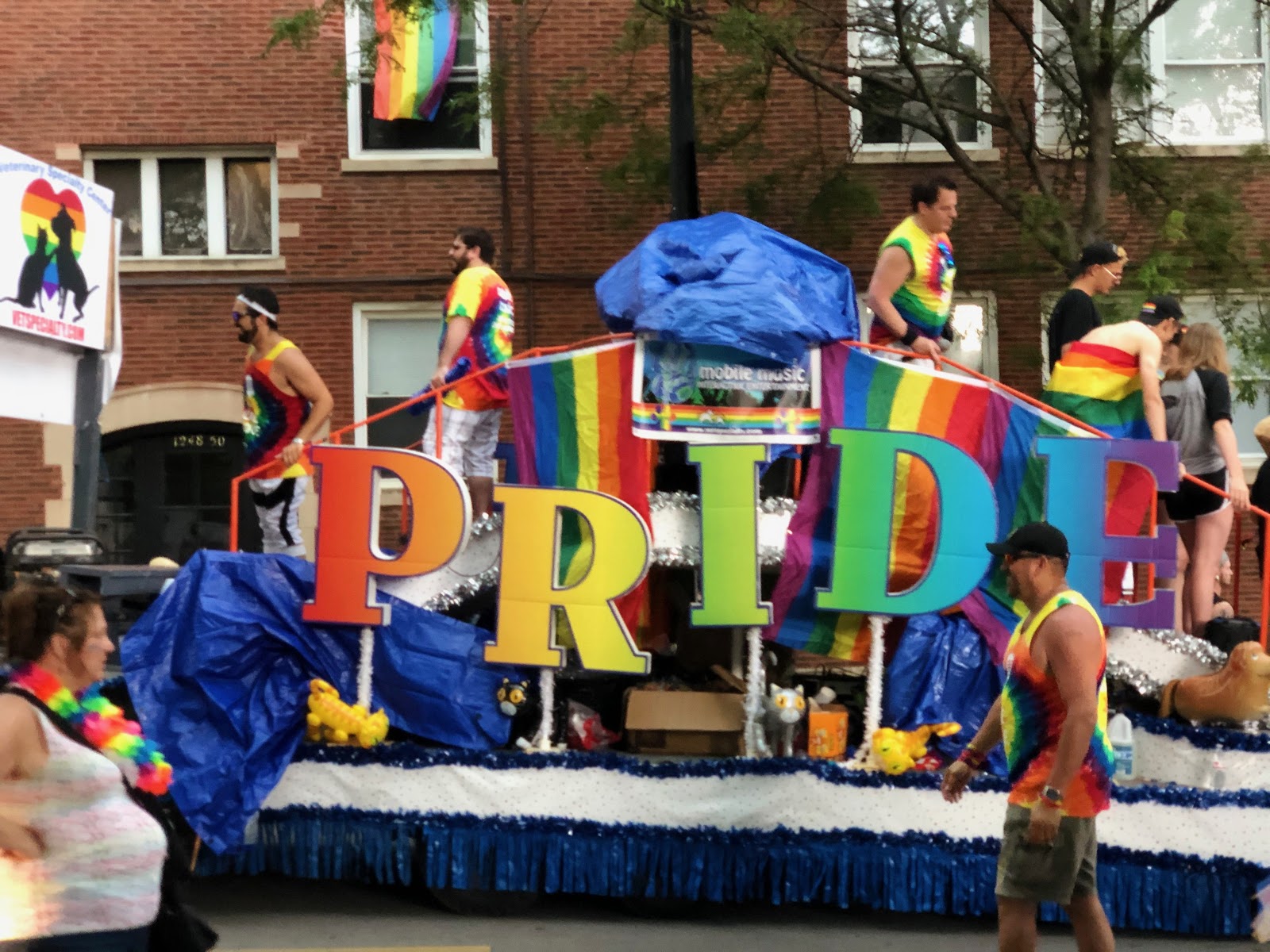Chinese and out in America — and only in America

“Here in America, walking down a street full of strangers, I can hold hands with my boyfriend and I’m not embarrassed. But if I see a Chinese guy, I immediately get uncomfortable. I feel judged.”

Big Kitty (BK for short) wanted to study in the U.S. because she loved Lady Gaga. She learned English by serving as the vice president of her China-based fan club, where she translated Gaga news and interviews into Chinese. BK’s love for Gaga was not disconnected to the pop star’s status as a gay icon; before leaving her home in Shanghai to attend high school in New York, BK knew she was queer. So she started dropping hints about her sexual orientation to her mother, trying to gauge how she felt toward homosexuality.
“Every year I come back, I slowly brainwash her to be more accepting,” Big Kitty, now a rising college senior in New York, said. But brainwashing is difficult, especially between generations. She explained that her mom, the breadwinner of the family who started her career as a Shanghai taxi driver and now runs her own business, is not homophobic. She just doesn’t want a gay daughter because, as she put it to BK, “I only have you.”
BK’s plight is typical in China. Parents of LGBT youth are in many cases unable to accept their children’s sexual orientations, even if they do not generally oppose homosexuality.
BK broke down the difficulty of just “being yourself” to Chinese parents. “If I were in an American family, I could be like, ‘You’re being a bitch, this is not right!’” she said. “But we just can’t do that. Because our parents, all due respect, give us so much more. They don’t live their own lives. They just live for us.”
There is a growing community of LGBT Chinese who study or work in the States who have to reconcile living out in America while closeted to their family members in China. It’s one thing to be out to strangers in a foreign land, or to friends and peers who are more open-minded, but it’s entirely different to be out to the people who raised you and who might reject you.
LGBT Chinese students are more likely to come out to a friend or peer than a teacher or parent, indicating a cross-generational gap in acceptance of queer sexual orientations. Furthermore, 94 percent of self-identified LGBT individuals in China are under the age of 34.
Toby, a young professional from Nanjing who lives and works in Chicago, describes the culture surrounding homosexuality in China as “don’t ask, don’t tell.”
“Even though I had full internet access, I still remember feeling confused and lonely about my sexuality because it wasn’t talked about,” Toby said. He could imagine the situation being “10,000 times worse” for young Chinese who might not have access to information about LGBT community and identity throughout the world.
But he also acknowledges the efforts of organizers in China who have made major strides toward cultivating more widespread community and support. For example, the eleventh annual ShanghaiPRIDE, an LGBT pride event that occurs in China’s largest city, took place last month from June 8 to 16. The theme this year was “Share the Pride” (同享彩虹 tóng xiǎng cǎihóng), and the schedule included more than 30 events, including film screenings, talks, outdoor activities, and more.
“If I were in an American family, I could be like, ‘You’re being a bitch, this is not right!’ But we just can’t do that. Because our parents, all due respect, give us so much more. They don’t live their own lives. They just live for us.”
Ike, who is from Hunan and currently lives in Shanghai, was recently on vacation in the U.S. when he attended Los Angeles Pride. He described the experience as affirming in its visibility. “There were rainbow flags everywhere, everyone was saying ‘Happy Pride,’ it made me feel a stronger sense of self-acceptance because gayness was so prominent,” he said.
Another element of the Pride parade that stuck out to him was its commercialization — it seemed like companies were trying to be pro-LGBT to ingratiate themselves with the community. “Companies are trying to capture gay customers,” he said. “I even saw the company I work for represented there.”
Toby believes in the importance of members of the LGBT community seeking out support. “No one is gonna tell you to be proud of being gay unless you find a community and find a voice,” he said. In Chicago, he serves in a queer resource group for the city’s business community. Toby feels comfortable not only being out in his workplace, but also serving as an advocate for other LGBT groups in the city.
He also feels a generational impact toward queer acceptance. While Toby is comfortable being out among friends and peers, he cannot speak openly about his sexuality with his family. He was raised by “traditional Chinese grandparents” who he worries will not be able to take the shock.
“It is hard not being able to be completely honest about my sexual orientation,” he said. “I know people who are out to their parents have more topics to talk about and their relationships can get deeper.”
“One of the most commonly used standards LGBT children use to come out to their parents is to wait until they are financially secure,” said Alex Li, a writer at Vice who received her Ph.D. in Gender and Sexuality Studies from the University of Aukland. “It tells you a lot about their fears of what their families might do, and it’s an exit plan. At least they won’t starve.”

Some people are working toward bridging the gap between LGBTQ youth and their families in both countries: PFLAG, America’s largest ally organization, is on a mission to “unite LGBTQ people with families, friends, and allies.” The organization has a China outpost with chapters in eight Chinese cities.
But individuals are still left to do the tough work.
Ike, who works in Shanghai, doesn’t feel comfortable sharing his sexuality with co-workers. He doesn’t fear outspoken homophobia or discrimination, but rather more subtle ostracization or isolation.
Derek, who is from Chongqing and attends medical school in the U.S., was able to come out to friends in China, but has given up trying to come out to his mother, who has told him she believes homosexuality doesn’t exist in China. Derek said his father has no problem with gay or transgender people in general, but he wouldn’t want his son to be one of them because of a clear expectation that Derek will have kids.
Big Kitty, meanwhile, is chipping away — subtly and slowly — at her mother’s rejection of her sexuality. When family friends ask whether she has a boyfriend, her mom responds by explaining that she doesn’t believe in the “traditional way of dating.” Sometimes they might crack a joke together, like, “Your boyfriend is only your boyfriend until he’s someone else’s boyfriend.” Sometimes BK even claims she just “uses men as a wallet” when speaking to her mother’s friends.
“I’ve never used any man as a wallet!” she told me. She’d have to date them to do that. In these conversations, it feels like BK and her mom are on the same team. “We say these things to prepare people not to care about this stuff. I’m very proud of how far she’s come,” BK said.
Beyond individual families, advocating for gay rights more broadly has political difficulties in China. Protest is all but impossible, and censorship under the current administration is more extensive than ever, making it increasingly difficult for China’s queer youth to find community. Alex Li of Vice has noticed a lot of activism coming from the young LGBT community, but their conversations and commentary about queerness on social media are often taken down from Weibo and other platforms.
While China is not aggressive toward gays and lesbians, the landscape is relatively tight-lipped, perpetuating more apathy than acceptance. Toby referenced a controversy propagated by parents in response to a primary school sex education textbook produced by Beijing Normal University that included progressive ideas about sex and gender, such as: “People with different sexual orientations have the right to choose to be parents.”
While the book’s production was a positive sign, some parents’ negative reaction shows that open-mindedness is not the norm.
“Progress is very hard to make in China right now,” Toby said. “And even when it happens, the general public might just push back because the political atmosphere supports them.”

Having lived in the States for years, Toby and Big Kitty both suggested some freedoms are easy for Americans to take for granted — even those that don’t yet exist. For example, contrary to popular assumption, the U.S. still lacks federally enforced anti-discrimination laws based on sexual orientation.
In this negligence, the U.S. might have more in common with China than it would care to believe.
“The Chinese government is not attacking gay people; it’s just ignoring them,” Derek said. “People are sort of getting comfortable with this, so even most gay people don’t really care about rights like gay marriage.”
Derek believes parables advocating for silence are prominent in Chinese society, based on stories from China’s history that demonstrate the risks in coming forward. This contributes to a lack of action and sustained disinterest in advancing gay rights.
Organizations in China such as the Beijing LGBT Center (北京同恋中心), which supports Beijing’s gay community by providing counseling, HIV testing, and promoting equality and visibility, are working toward ensuring a more free and open future for gays and lesbians in China.
As BK pointed out, gay rights are fundamentally human rights, and stem from foundational respect for all kinds of other people.
Li agreed, emphasizing the important relationship between feminism and eradicating homophobia. “Equality should encompass everyone’s rights; that’s why I think it’s good that in China the feminist movement and the LGBT movement are pretty well-aligned,” she said.
But stigma is hard to shake, especially when it is wrapped up in cultural identity.
“Here in America, walking down a street full of strangers, I can hold hands with my boyfriend and I’m not embarrassed,” Derek explained. “But if I see a Chinese guy, I immediately get uncomfortable. I feel judged.”
There is also a sense of guilt that comes from knowing you might be the cause of your family’s embarrassment. Big Kitty invoked a saying in Chinese, “家丑不外扬” (jiāchǒu bù wàiyáng), or “keep family skeletons in the closet.” For LGBT Chinese, sharing the truth even within one’s family can be too big of a skeleton for them to bear.
Because she feels such a strong sense of connection with her family members, BK feels that she doesn’t have the freedom to live for herself without thinking of potential consequences for them.
“At the end of the day, I’m afraid my life is just my mom’s,” she said.
Top photo courtesy of Derek.





